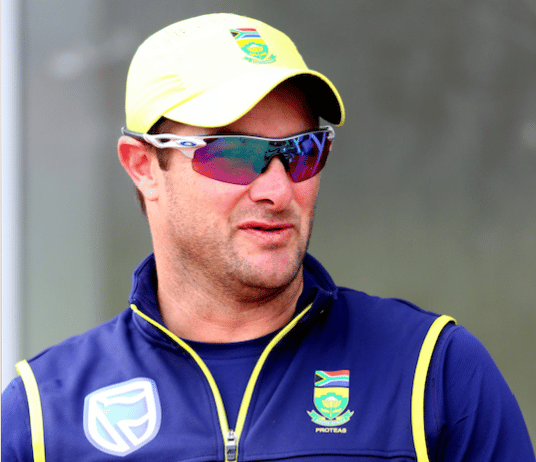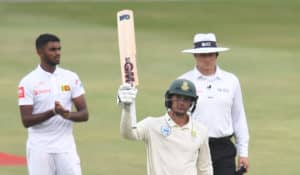Mark Boucher’s competency as Proteas head coach will be revealed over the summer, writes RYAN VREDE.
Series against England and Australia were a brutal way for Boucher to start his tenure. Despite having limited time with the Test and white-ball squads in the buildup to those series, Boucher’s teams showed enough to suggest he can mould them into highly competitive units in future.
A 3-1 Test series defeat by England raised concerns. The Proteas subsequently won four of six ODIs they played (one defeat, one no result), and two wins from four T20I matches.
Boucher’s mandate, according to director of cricket Graeme Smith, was: ‘I have brought Boucher on board because I feel he will bring the toughness to turn a young and inexperienced Proteas squad into a battle-ready outfit. With his experience of a long career as an international cricketer he has first-hand experience of what it takes to succeed in the Test arena.’
Smith added: ‘As far as my vision for the future is concerned, we need to rewind to performance excellence and that will be the focus going forward. Our public want and demand a world-class Proteas side and we must deliver on that.’
Boucher’s appointment wasn’t without controversy. His four-year deal was longer than any coach in Proteas history was offered, and he got the job without having to interview. This elicited cries of cronyism, given his historically close relationship with Smith.
His domestic success in his three years in charge of the Titans – two domestic T20 titles, a One-Day Cup, and a 4-Day Franchise Series title – quelled the criticism to an extent, but he will feel the pressure to do well in a summer featuring tours by England, Australia, Sri Lanka and Pakistan. There is also the possibility of a tour to Pakistan in early 2021.
Instilling the ‘toughness’ Smith seeks – a characteristic that marked Boucher’s own career – will be a difficult task. You can’t teach temperament under pressure. Time will reveal those players who have it and who don’t. Boucher and his coaching team will have to develop the players in other significant ways. Critically, there has to be a focus on the technical dimensions of the game, given the relative inexperience of the players in the squad. Developing individuals’ tactical IQ will also be important if they are to build the type of consistency Smith demands.
His most urgent assignments will be deciding who captains the Test team, who opens the batting with Dean Elgar and finding a replacement for all-rounder Vernon Philander. Individuals need attention too, not least of all Aiden Markram, who is struggling for form.
Boucher spoke candidly about his coaching philosophy earlier this year: ‘My biggest lesson is to let people be who they are and let them be natural,’ he said. ‘I played at my best when I was natural but my natural wasn’t the same as AB’s [de Villiers] natural or JK’s [Jacques Kallis] natural. That’s a big lesson I have learned with regard to leading individuals.’
Asked about what he views as the most important aspect of his job was, Boucher said: ‘Our role as coaches is about trying to create an environment for these guys to go out there and play their best cricket.
‘It’s been hard work on the coaches, we have thrown a lot and my shoulder is a bit sore but we want to get the dirty work done. And the dirty work is sometimes a bit uncomfortable for the players in the nets, but we spoke about being adaptable and open to change and to try and break the ceiling a bit and see how far we can push ourselves as individuals and as a team.’
After his first summer in charge was marked by the collective acceptance that he is finding his feet, the upcoming summer is going to reveal more about Boucher’s competency for the job.





